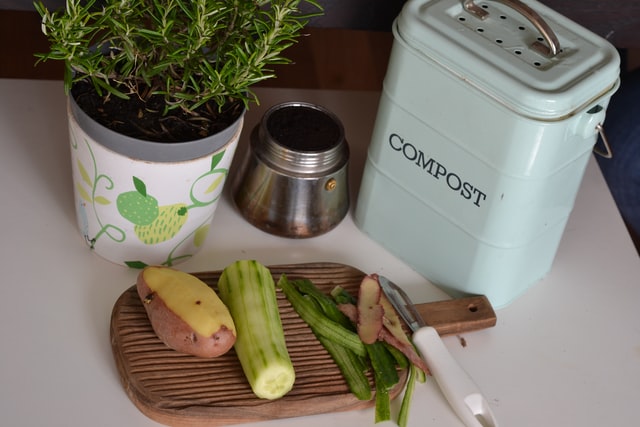You’re not hoping to throw your food away when filling your grocery cart. Everyone’s goal is to eat the food they bring home, but it doesn’t always work out that way. That’s an incredibly challenging problem for people who want to live an eco-friendly lifestyle. If that’s the case for you, check out these tips for reducing food waste overnight.
1. Start Meal Planning
It’s so easy to buy too much food at the store. You might take advantage of a great sale or coupon that results in more waste than usual in your home. Meal planning is an excellent way to buy only what you need. You’ll know exactly which groceries will create each entree. Make a blank weekly calendar and vary your meal types for each day. You can prep everything twice a week with some help from your targeted grocery list.
2. Calculate The Financial Loss
Tossing leftovers may not seem like a financial loss because they’re too spoiled to eat. However, the money you spent to buy the food was a waste if it ended up in a landfill. Americans throw away $2,200 worth of groceries annually, but you can put that money elsewhere by strategizing your grocery shopping.
Consider which foods are most often thrown away in your household and how much they cost. You can either avoid buying as much during your next trip to the store or divert the same funds to other necessities.
3. Render Your Leftovers
Cooking an entire chicken or turkey may create delicious food, but plenty of leftover animal parts end up in landfills. Rendering is a process that reuses byproducts like fat and tissue to make meat-eating lifestyles more sustainable. You could use what you don’t want as fertilizer or save the liquid fat for frying and grilling later.

4. Eat The Ugly Food
Misshapen squash and dented apples are just a few ugly foods stores and customers throw out based on looks. Food industry experts estimate 20% of wasted produce rots in landfills because people deem it ugly. Avoid throwing out anything that isn’t actually past its prime. You may instinctively waste produce or other goods just because of how they look.
5. Grow Your Herbs
How many containers of dried herbs or wilted cilantro have you thrown out over the years? Herbs are a common source of food waste because they’re easy to forget in the back of your pantry or refrigerator. Growing them in an indoor or outdoor garden changes the game. You’ll look forward to enjoying homegrown food and get fresher flavors because you’re using your herbs right away.
6. Compost Your Waste
Even the most careful people will eventually deal with wasted food. Sometimes you can’t help it when a few things go bad in your fridge or are accidentally left on your countertop too long. Think about starting a compost bin to help during those moments. You’ll have a safe place to dispose of edible waste and turn it into organic fertilizer for your yard. It’s a more sustainable way for the food to break down because everything decomposes naturally.

7. Eat Before Grocery Shopping
Everyone has walked through the store with an empty cart and grabbed a few extra foods because their stomach started growling. This can lead to more waste if you buy things you don’t normally eat. Snack on a cheese stick, nuts or other healthy foods before leaving for the store. You’ll avoid buying too much food if you’re not ravenously hungry while walking through the grocery aisles.
Start Reducing Food Waste
Implement these food-saving tips to transform your sustainable lifestyle. Efforts like meal planning, rendering and composting are a few easy ways to stop wasting so much food and mitigate what you can’t control so the Earth is a better place to live.
Author Bio
Jane is an environmental writer and the founder and editor-in-chief of Environment.co where she covers sustainability and eco-friendly living.



































